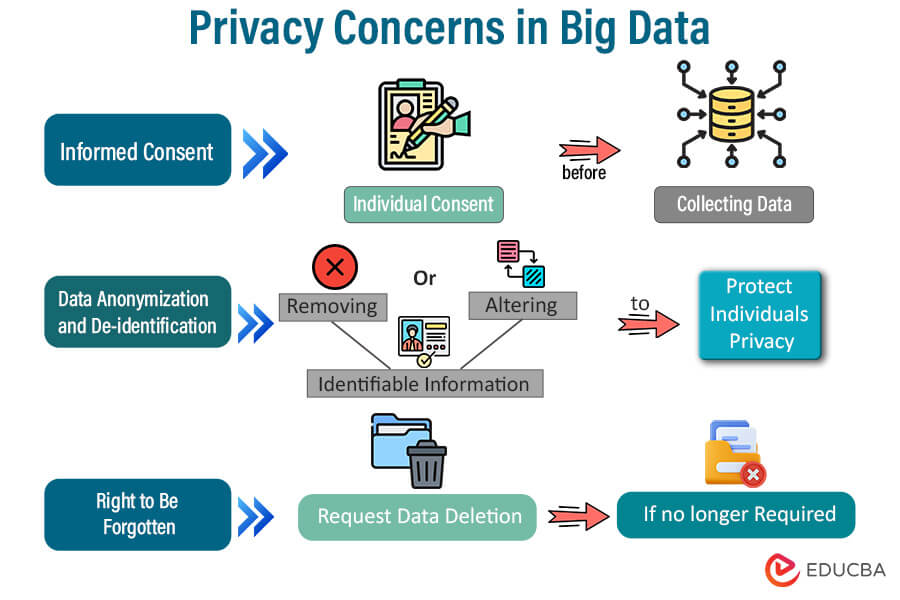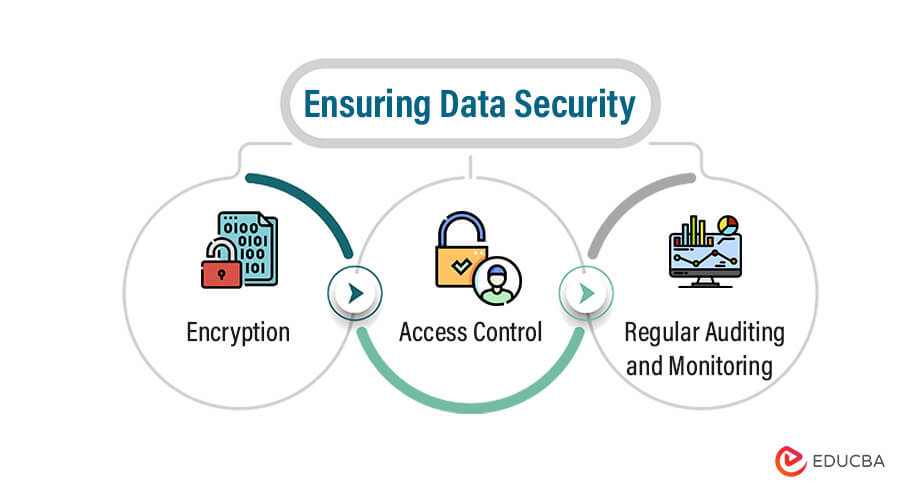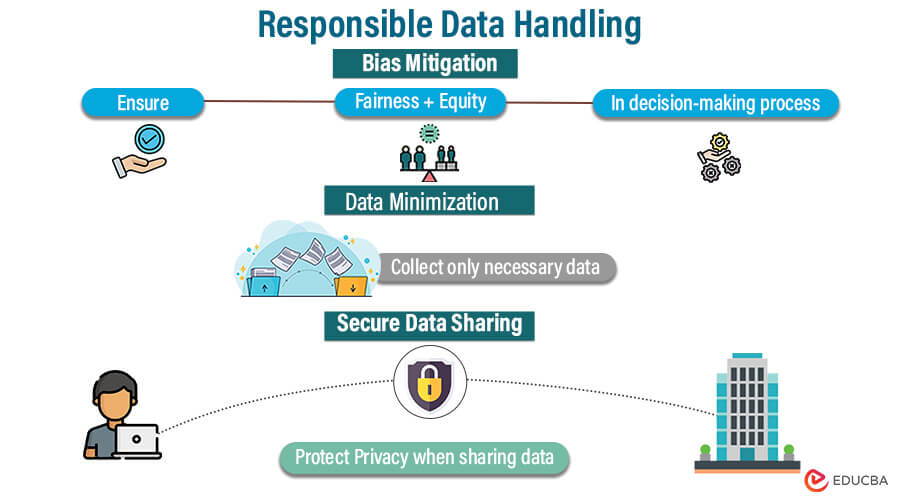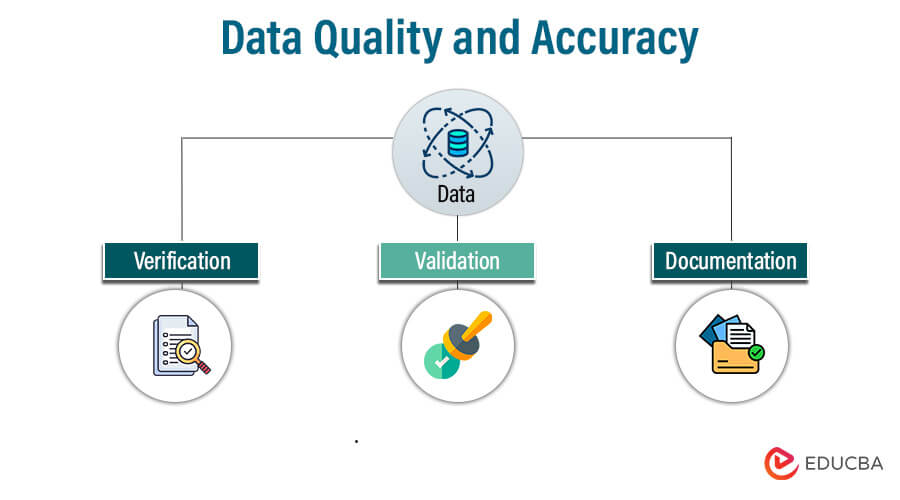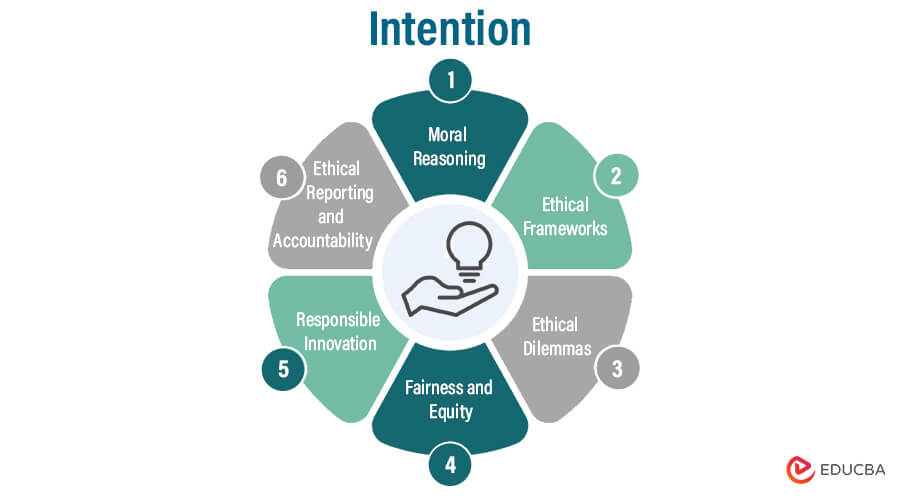Introduction to Big Data Ethics
In today’s digital age, the proliferation of data has transformed the way we live, work, and interact. The advent of big data, characterized by the massive volume, velocity, and variety of information generated and collected, has unlocked new opportunities for innovation and insights across various industries. However, as the capabilities of collecting and analyzing data have grown, so have the ethical challenges surrounding its use. This article explores Big Data Ethics, with a focus on privacy, security, and responsible data management.
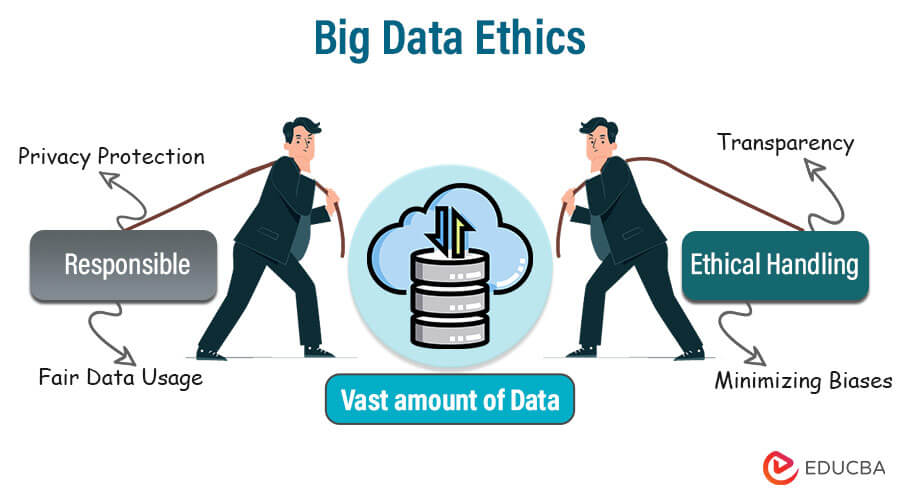
Table of Contents
What is Data Ethics?
Data Ethics refers to the moral principles, guidelines, and practices that govern the responsible collection, processing, sharing, and use of data. It involves considering the ethical implications of data-related activities, respecting individual privacy, ensuring fairness, minimizing biases, and balancing the benefits of data utilization with the potential risks and societal impact. Data ethics seeks to align technological advancements with human values, promoting transparency, accountability, and the well-being of individuals and communities.
Principles of Data Ethics for Business Professionals
Data ethics has become increasingly important as businesses collect, process, and utilize large amounts of data. Adhering to ethical principles ensures that businesses handle data responsibly, respecting individual privacy and societal values. Here are a few principles of data ethics for business professionals:
1. Privacy Concerns in Big Data
Privacy is a fundamental right that must be upheld in the era of big data. The unprecedented amount of personal information collected from individuals raises concerns about how this data is used, shared, and protected. Inadequate privacy measures can lead to breaches of personal boundaries and potentially harm individuals and society as a whole.
- Informed Consent: The principle of informed consent asserts that individuals must be aware of what data is being collected, how it will be used, and who will have access to it. Transparency is essential to establish trust between data collectors and individuals. Organizations must obtain explicit consent before collecting and processing personal data.
- Data Anonymization and De-identification: Anonymizing and de-identifying data involve removing or altering identifiable information to protect the privacy of individuals. However, advancements in re-identification techniques pose a challenge to these practices. Striking a balance between data utility and privacy is imperative.
- Right to Be Forgotten: Individuals should have the right to request the deletion of their data when it is no longer necessary for the purpose it was collected. This empowers individuals to control their digital footprint and contributes to the responsible use of data.
2. Ensuring Data Security
Data breaches and cyberattacks have become prevalent in recent years, underscoring the need for robust data security measures in big data environments. The consequences of data breaches can be severe, leading to financial losses, reputational damage, and compromised personal information.
- Encryption: Data encryption is a critical measure to protect data both at rest and during transmission. Advanced encryption techniques, such as end-to-end encryption, ensure that only authorized parties can access and understand the data.
- Access Control: Implementing strict access controls ensures that only authorized personnel can access sensitive data. Role-based access and multi-factor authentication add layers of security to prevent unauthorized access.
- Regular Auditing and Monitoring: Continuous monitoring of data systems and regular audits can help identify vulnerabilities and unauthorized activities. Prompt detection allows for timely responses to potential security threats.
3. Responsible Data Handling
Responsible data handling encompasses the ethical use, storage, and sharing of data. It involves aligning data practices with societal values and minimizing the negative impact that data use might have on individuals and communities.
- Bias Mitigation: Big data analytics can perpetuate biases present in the data, leading to discriminatory outcomes. Organizations must actively work to identify and mitigate biases to ensure fairness and equity in decision-making processes.
- Data Minimization: Collecting only the necessary data for a specific purpose reduces the risk associated with storing and handling excess information. Data minimization aligns with the principle of privacy by design, promoting the ethical use of data.
- Secure Data Sharing: Organizations must take adequate measures to protect data integrity and individual privacy when sharing data. Techniques like differential privacy can be employed to share aggregated information without revealing sensitive details.
4. Data Quality and Accuracy
- Data Verification: Data verification involves implementing robust processes to ensure that the data collected or entered into systems is accurate, complete, and reliable. This process typically includes mechanisms to prevent data entry errors, such as validation rules, data type checks, and range constraints. Verification also extends to confirming the authenticity of the data source, ensuring that it comes from a trusted and credible origin.
- Data Validation: Data validation is an ongoing process of regularly checking and validating data to identify and rectify errors or inconsistencies. This includes running automated data validation checks and audits to catch issues like missing values, outliers, or data that falls outside of predefined criteria. When discrepancies are found, they should be promptly investigated and corrected.
- Data Documentation: Maintaining clear and comprehensive documentation of data is crucial for ensuring data quality and accuracy. This documentation should include details about the data sources, the methods used for data collection, transformation processes, and any calculations performed on the data. Furthermore, it’s essential to document any limitations, caveats, or known issues associated with the data. This information helps users and analysts understand the context and potential biases within the data, promoting transparency and informed decision-making.
5. Intention: Ethical Motives Matter
- Moral Reasoning: Moral reasoning involves the process of understanding and applying ethical principles and values when making decisions. It requires individuals to reflect on what is right or wrong in a given situation and consider the potential consequences of their actions. Ethical decision-makers weigh their choices against a moral framework to ensure their actions align with their personal or organizational values.
- Ethical Frameworks: Ethical frameworks provide structured guidelines for making ethical decisions. They offer different perspectives on what constitutes ethical behavior. Common ethical frameworks include:
- Deontology: This framework emphasizes the importance of following moral rules and principles regardless of the consequences. Decisions are made based on the inherent rightness or wrongness of an action.
- Utilitarianism: Utilitarianism focuses on maximizing overall happiness or minimizing harm. Decisions are evaluated based on the greatest good for the greatest number of people.
- Virtue Ethics: Virtue ethics emphasizes developing virtuous character traits and making decisions that reflect these virtues. It focuses on personal integrity and ethical development.
- Ethical Dilemmas: Ethical dilemmas arise when individuals encounter situations where ethical considerations may conflict. These dilemmas often involve difficult choices between two or more morally valid options. Ethical decision-makers must carefully evaluate the competing ethical principles and values to find a balanced and ethical solution.
- Fairness and Equity: Ensuring fairness and equity in decision-making is essential to treat all individuals or stakeholders impartially. Ethical decision-makers consider the potential impacts of their choices on different groups and strive to avoid biases and discrimination. Fairness and equity promote social justice and equal treatment.
- Responsible Innovation: Responsible innovation involves aligning innovative efforts with ethical principles and addressing societal challenges. It emphasizes the ethical implications of new technologies, products, or practices. Ethical innovation aims to minimize harm, protect individual rights, and contribute positively to society.
- Ethical Reporting and Accountability:
- Transparency and Disclosure: Being transparent about decisions and actions, including any potential conflicts of interest.
- Whistleblower Protection: Establishing mechanisms to encourage and protect employees who report unethical behavior.
Conclusion
The ethical challenges posed by big data are complex and multifaceted. Privacy, security, and responsible data handling are central pillars that must be upheld to harness the benefits of big data while safeguarding individual rights and societal well-being. Striking a balance between innovation and ethical considerations is crucial for building a sustainable data-driven future. As technology continues to advance, individuals, organizations, and policymakers must collaborate to establish robust frameworks that protect privacy, ensure data security, and promote responsible data handling practices. By doing so, we can navigate the evolving landscape of big data with integrity and accountability.
Recommended Articles
We hope that this EDUCBA information on “Big Data Ethics” was beneficial to you. You can view EDUCBA’s recommended articles for more information.
